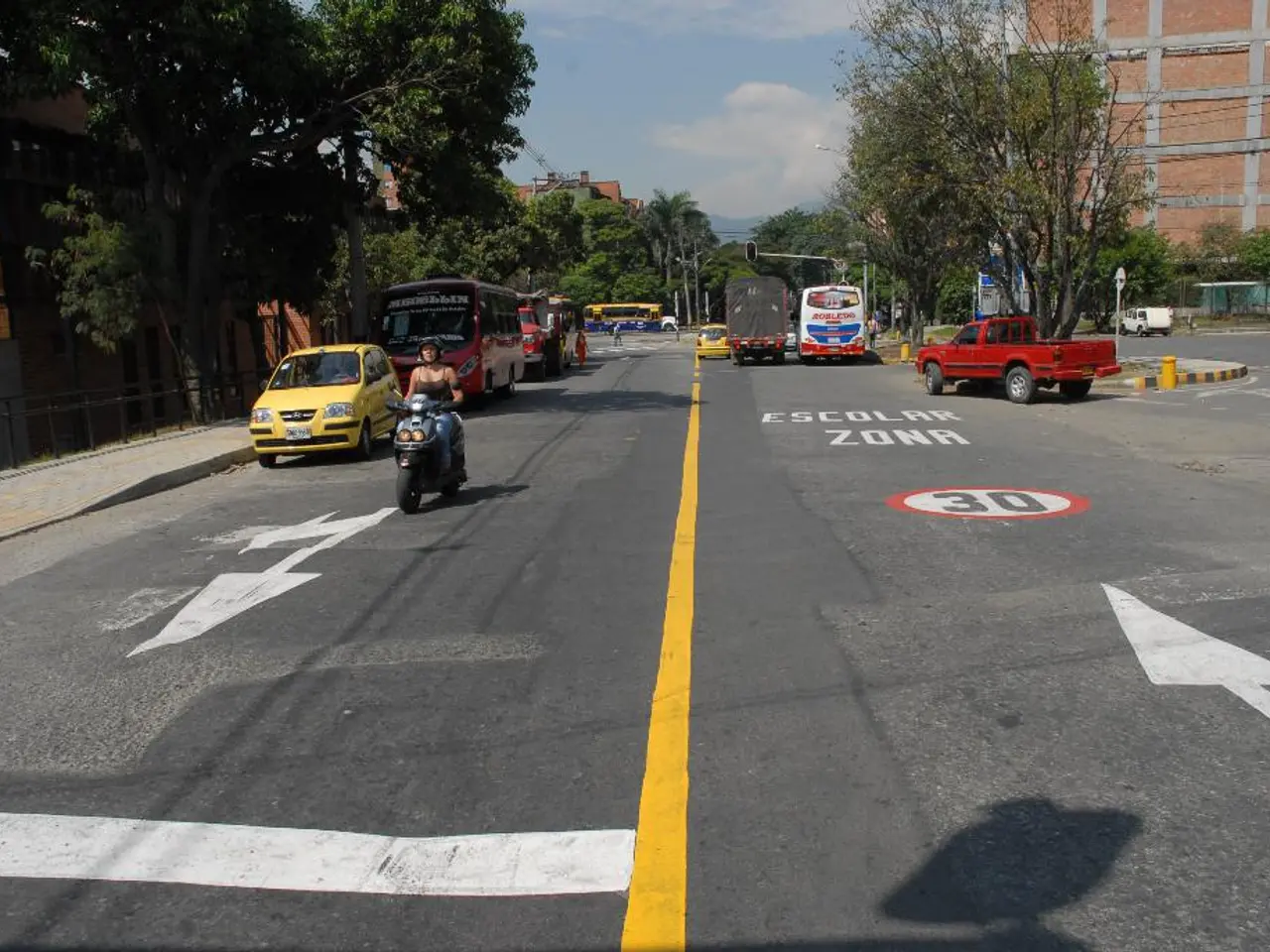Residents of Queens struggling to recover from flood damage, experiencing disruptions in their daily commutes due to the flooding incident
Flooding Disrupts Queens Community and Long Island Rail Road
Heavy rain and flash flooding in Queens, New York, on August 1, 2025, caused a retaining wall between a home and the Long Island Rail Road (LIRR) tracks to collapse, resulting in severe flooding in a resident's backyard and basement[1][4]. This incident was part of a larger severe flooding incident that affected the LIRR Port Washington Branch and other infrastructure[2][3].
The LIRR suspended service in the affected area around Flushing Main Street in Queens as crews began repairing storm damage, including the retaining wall and tracks[2]. As of the latest reports on August 1 and 2, 2025, repair work is ongoing, but specific detailed plans for the retaining wall’s reconstruction or strengthening have not been publicly detailed[2][3][4].
Residents in the affected area have been impacted by the flooding. Tinley Choeden suffered a three-inch cut on her elbow during the flooding, and her backyard is torn up due to the flooding[3]. Bob DeMarco's basement next door on 41st Road also flooded[3].
The incident has highlighted the vulnerabilities of the city's infrastructure to extreme weather events. Janno Lieber, MTA Chair and CEO, stated that the week was challenging due to old infrastructure and water accumulation on transit systems[5]. Rob Free, LIRR President, emphasized that the system is resilient but cannot keep up with storm runoff water from surrounding areas[6].
In response to the flooding, the MTA conducted an initial inspection of Dierdre Agapakis' property, who had warned the MTA two years ago about a leaky retaining wall between her home and the tracks[1]. The MTA will be assessing next steps[1].
The flooding also caused disruptions to the morning commute on Friday[3]. The LIRR service on the Port Washington Branch was halted on Thursday due to the flooding[2]. However, service was restored on Friday[7].
The flooding has not been limited to Queens. Nassau County has also been affected by flooding and power outages this week[8]. On Thursday, commuters were trapped inside a train just outside Bayside due to flooding blocking much of the line[9].
Authorities continue to monitor flood impacts and prioritize repair of affected retaining walls, roadways, and LIRR operations. Elijah Westbrook, an Emmy award-winning journalist who joined News New York in January 2022, is covering the story[10].
[1] MTA warns of leaky retaining wall two years ago.[2] LIRR service suspended due to flooding in Queens.[3] Queens community faces severe flooding.[4] Resident's home and backyard flooded due to collapsed retaining wall.[5] MTA Chair and CEO Janno Lieber on infrastructure challenges.[6] LIRR President Rob Free on system resilience.[7] LIRR service restored on Port Washington Branch.[8] Nassau County affected by flooding and power outages.[9] Commuters trapped in train due to flooding in Bayside.[10] Elijah Westbrook, Emmy award-winning journalist, covers the story.
- The severe flooding in Queens and Long Island Rail Road disruptions highlight the need for laws addressing infrastructure's resilience against extreme weather events in the financing and transportation industries.
- The weather incident has caused financial implications for residents, such as Tinley Choeden's medically-required treatments and Bob DeMarco's repairs for his flooded basement.
- News outlets, like News New York, are closely covering the impact of the weather event on the local news industry, including the MTA's response to related infrastructure concerns.




